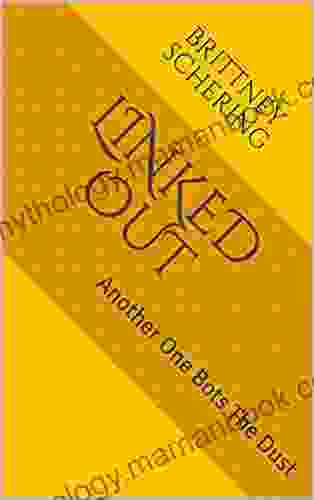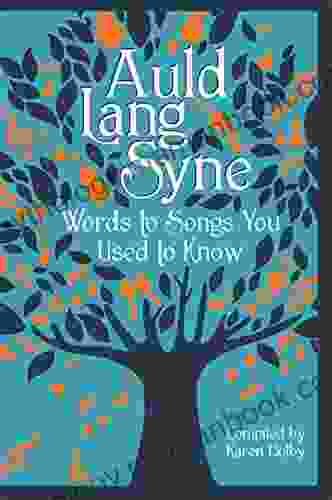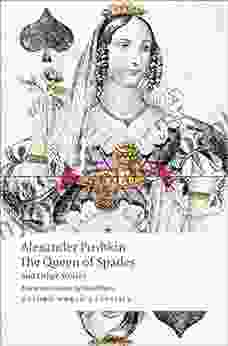Shakespearean Sonnets in Contemporary English: A Comprehensive Analysis

4.4 out of 5
| Language | : | English |
| File size | : | 410 KB |
| Text-to-Speech | : | Enabled |
| Screen Reader | : | Supported |
| Enhanced typesetting | : | Enabled |
| Word Wise | : | Enabled |
| Print length | : | 405 pages |
| Hardcover | : | 240 pages |
| Item Weight | : | 5 ounces |
| Dimensions | : | 5 x 0.2 x 8 inches |
| Paperback | : | 80 pages |
William Shakespeare's sonnets are considered some of the greatest works of English literature, renowned for their timeless themes, exquisite language, and intricate structure. Written in the 16th century, these sonnets have captivated readers for centuries, inspiring countless interpretations and adaptations.
However, the language of Shakespeare's sonnets can be challenging for modern readers, making it difficult to fully appreciate their beauty and complexity. This article aims to provide a comprehensive analysis of Shakespearean sonnets, exploring their structure, themes, and language, and offering a fresh perspective by translating them into contemporary English.
The Structure of Shakespearean Sonnets
Shakespearean sonnets consist of 14 lines, typically written in iambic pentameter (a rhythmic pattern of unstressed and stressed syllables). The sonnets are divided into three quatrains (four-line stanzas) and a final couplet (two-line stanza). The rhyme scheme varies, but the most common pattern is ABAB CDCD EFEF GG.
The first quatrain often introduces the sonnet's main theme or argument, while the second quatrain develops this idea or presents a contrasting perspective. The third quatrain often offers a turn or twist, leading to the final couplet, which typically provides a resolution or .
The Themes of Shakespearean Sonnets
Shakespeare's sonnets explore a wide range of themes, including love, beauty, mortality, and nature. Love is a central theme, particularly in the sonnets addressed to the "Fair Youth" and the "Dark Lady." These sonnets celebrate the beauty and power of love, while also exploring its complexities and contradictions.
Beauty is another recurring theme in Shakespeare's sonnets. The poet often describes the physical beauty of his beloved, but he also explores the fleeting nature of beauty and the importance of inner beauty.
Mortality is a third major theme in Shakespeare's sonnets. The poet frequently reflects on the inevitability of death and the importance of making the most of life. He also explores the power of poetry to immortalize beauty and love.
Nature is another important theme in Shakespeare's sonnets. The poet often uses nature imagery to symbolize different aspects of human experience. For example, flowers represent beauty and youth, while winter represents death and decay.
The Language of Shakespearean Sonnets
Shakespeare's sonnets are written in a highly stylized language that is both beautiful and complex. The poet uses a wide range of literary devices, including metaphors, similes, personification, and hyperbole.
Metaphors are one of the most common literary devices used by Shakespeare. A metaphor is a figure of speech that compares two things that are not literally alike, but have something in common. For example, in Sonnet 18, Shakespeare compares his beloved to a "summer's day."
Similes are another common literary device used by Shakespeare. A simile is a figure of speech that compares two things that are not literally alike, using the words "like" or "as." For example, in Sonnet 130, Shakespeare compares his mistress's eyes to "two stars."
Personification is a literary device that gives human qualities to non-human things. For example, in Sonnet 73, Shakespeare personifies Time as an old man who steals away beauty.
Hyperbole is a literary device that exaggerates something for emphasis. For example, in Sonnet 116, Shakespeare claims that his love is "more strong than time."
Shakespearean Sonnets in Contemporary English
While Shakespeare's sonnets are undoubtedly beautiful and complex, their language can be challenging for modern readers. To make these sonnets more accessible, here is a selection of contemporary English translations:
Shall I compare thee to a summer's day? Thou art more lovely and more temperate: Rough winds do shake the darling buds of May, And summer's lease hath all too short a date:
Sometime too hot the eye of heaven shines, And often is his gold complexion dimm'd; And every fair from fair sometime declines, By chance or nature's changing course untrimm'd;
But thy eternal summer shall not fade, Nor lose possession of that fair thou ow'st; Nor shall Death brag thou wander'st in his shade, When in eternal lines to time thou grow'st:
So long as men can breathe or eyes can see, So long lives this, and this gives life to thee.
My mistress' eyes are nothing like the sun; Coral is far more red than her lips' red; If snow be white, why then her breasts are dun; If hairs be wires, black wires grow on her head.
I have seen roses damask'd, red and white, But no such roses see I in her cheeks; And in some perfumes is there more delight Than in the breath that from my mistress reeks.
I love to hear her speak, yet well I know That music hath a far more pleasing sound; I grant I never saw a goddess go; My mistress, when she walks, treads on the ground.
And yet, by heaven, I think my love as rare As any she belied with false compare.
Shakespearean sonnets are a timeless treasure of English literature. Their exquisite language, intricate structure, and profound themes have captivated readers for centuries. By translating these sonnets into contemporary
4.4 out of 5
| Language | : | English |
| File size | : | 410 KB |
| Text-to-Speech | : | Enabled |
| Screen Reader | : | Supported |
| Enhanced typesetting | : | Enabled |
| Word Wise | : | Enabled |
| Print length | : | 405 pages |
| Hardcover | : | 240 pages |
| Item Weight | : | 5 ounces |
| Dimensions | : | 5 x 0.2 x 8 inches |
| Paperback | : | 80 pages |
Do you want to contribute by writing guest posts on this blog?
Please contact us and send us a resume of previous articles that you have written.
 Top Book
Top Book Novel
Novel Fiction
Fiction Nonfiction
Nonfiction Literature
Literature Paperback
Paperback Hardcover
Hardcover E-book
E-book Audiobook
Audiobook Bestseller
Bestseller Classic
Classic Mystery
Mystery Thriller
Thriller Romance
Romance Fantasy
Fantasy Science Fiction
Science Fiction Biography
Biography Memoir
Memoir Autobiography
Autobiography Poetry
Poetry Drama
Drama Historical Fiction
Historical Fiction Self-help
Self-help Young Adult
Young Adult Childrens Books
Childrens Books Graphic Novel
Graphic Novel Anthology
Anthology Series
Series Encyclopedia
Encyclopedia Reference
Reference Guidebook
Guidebook Textbook
Textbook Workbook
Workbook Journal
Journal Diary
Diary Manuscript
Manuscript Folio
Folio Pulp Fiction
Pulp Fiction Short Stories
Short Stories Fairy Tales
Fairy Tales Fables
Fables Mythology
Mythology Philosophy
Philosophy Religion
Religion Spirituality
Spirituality Essays
Essays Critique
Critique Commentary
Commentary Glossary
Glossary Bibliography
Bibliography Index
Index Table of Contents
Table of Contents Preface
Preface Introduction
Introduction Foreword
Foreword Afterword
Afterword Appendices
Appendices Annotations
Annotations Footnotes
Footnotes Epilogue
Epilogue Prologue
Prologue Litty Lokanath
Litty Lokanath Marion Maragh
Marion Maragh Julia Reed
Julia Reed Pat Strubbe
Pat Strubbe Kenneth J Fasching Varner
Kenneth J Fasching Varner Luiz Velho
Luiz Velho Alfred Coppel
Alfred Coppel Marie Ndiaye
Marie Ndiaye Marlena Renee
Marlena Renee Debbie Lesean
Debbie Lesean Krishna S Mercy
Krishna S Mercy Rawlin Cash
Rawlin Cash T Kingfisher
T Kingfisher Marisa T Mazza Psyd
Marisa T Mazza Psyd Richard Osman
Richard Osman Karen Kingsbury
Karen Kingsbury Edwin Crane
Edwin Crane Eli Saslow
Eli Saslow Pat Hutchins
Pat Hutchins Ann Howard Creel
Ann Howard Creel
Light bulbAdvertise smarter! Our strategic ad space ensures maximum exposure. Reserve your spot today!

 Aaron BrooksThe Evolution Controversy in America: A Journey Through Science, Religion,...
Aaron BrooksThe Evolution Controversy in America: A Journey Through Science, Religion,... Kyle PowellFollow ·19.3k
Kyle PowellFollow ·19.3k Willie BlairFollow ·13.9k
Willie BlairFollow ·13.9k Henry HayesFollow ·8.5k
Henry HayesFollow ·8.5k Alec HayesFollow ·9.6k
Alec HayesFollow ·9.6k Logan CoxFollow ·6.1k
Logan CoxFollow ·6.1k Jason ReedFollow ·8.7k
Jason ReedFollow ·8.7k Alexander BlairFollow ·13.2k
Alexander BlairFollow ·13.2k Harvey BellFollow ·17.2k
Harvey BellFollow ·17.2k

 Christopher Woods
Christopher WoodsDeath's Second Chance: The Unbelievable Story of Cris...
On July 29, 2008, Cris...

 Esteban Cox
Esteban CoxFrom Ralphie Kids to Adolescents: The Journey to Manhood
The transition from...

 Chris Coleman
Chris ColemanLetters From Young Father Poems: Delving into the Heart...
Fatherhood, a journey filled...

 Holden Bell
Holden BellCounterintuitive Marketing: Achieving Great Results Using...
In the ever-evolving world of...
4.4 out of 5
| Language | : | English |
| File size | : | 410 KB |
| Text-to-Speech | : | Enabled |
| Screen Reader | : | Supported |
| Enhanced typesetting | : | Enabled |
| Word Wise | : | Enabled |
| Print length | : | 405 pages |
| Hardcover | : | 240 pages |
| Item Weight | : | 5 ounces |
| Dimensions | : | 5 x 0.2 x 8 inches |
| Paperback | : | 80 pages |














